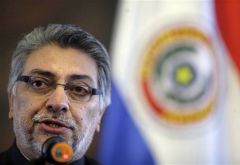By Eileen Gould
Impunity Watch Reporter, Oceania
CANBERRA, Australia – The Australian Government has refused to incorporate human rights into the law, an action which has been criticized by the ACT Human Rights Commissioner.
A recommendation suggested that the administration of Prime Minister Kevin Rudd adopt a law, allowing judges to review Australia’s laws, practices, and policies for human rights compliance.
Instead, Julia Gillard, Minister for Education, and Robert McClelland, Attorney General, announced the Government’s initiative to educate Australians and ensure their access to information about human rights.
According to Mr. McClelland, “[e]nhancing [Australia’s] efforts to improve human rights education is critical as too many Australians are not informed about what human rights are or how they are currently protected.”
Among the education initiatives included in the framework is a provision for “greater support for human rights education across the country, including primary and secondary schools” and “investing $2 million for the development and delivery of community education and engagement programs to promote a greater understanding of human rights by non-governmental organizations (NGOs)”.
The Federal Government plans to invest a total of $12 million for human right education, including the establishment of the framework for human rights, and also includes the formation of a new Parliament committee on this issue. However, the Government refuses to set up a Bill of Rights as part of this framework, contrary to recommendations made by an expert panel.
This decision, according to Human Rights Commissioner Dr. Helen Watchirs, goes against Australia’s wishes. A national consultation process revealed that approximately 29,000 submissions out of 35,000 favored a Human Rights Act. The research revealed that Australians supported human rights education rather than a human rights charter, yet there is no doubt Australians would support a human rights act.
Based on the experiences of two provinces, Victoria and the Australian Capital Territory, both of which have implemented Human Rights Acts, advocates claim that a national Act would be beneficial, as it would promote a more accountable government, address poverty, and improve public services.
This new Human Rights Framework will be reviewed in 2014.
For more information please see:
Sydney Morning Herald – A charter of rights is divisive? The vast majority think not – 23 April 2010
ABC – Human Rights Framework: icing without the cake – 22 April 2010
ABC News – Govt ‘ignoring’ Australian’s wishes on human rights – 22 April 2010
Govmonitor – Australia Outlines Education Initiatives to Enhance Human Rights – 22 April 2010

